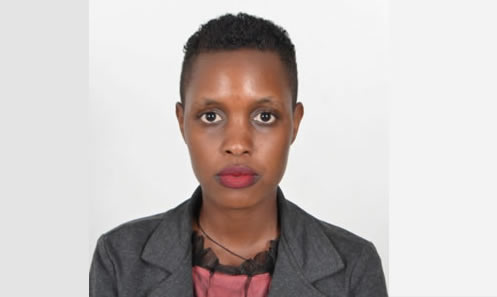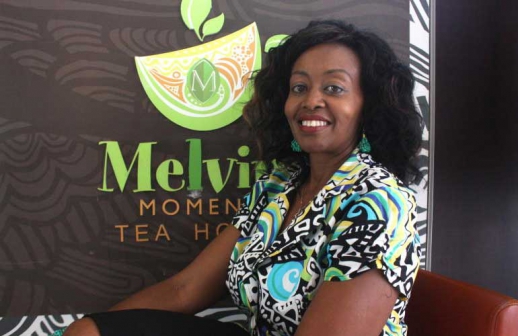We might have seen advocacy in different forms, but, this is refreshingly different. Grace Banda, a trained horticulturist, is using her deep knowledge of plants and their uses to promote sexual reproductive rights. She recently developed a natural contraceptive using Moringa leaves. In this Interview, she tells us about her discovery, agriculture and advocacy. Excerpts:
Agriculture is largely seen as Africa’s surest route to prosperity; but youth engagement in Agriculture has been very low, what do you think is responsible for this?
Youth engagement in agriculture has been low because of corruption , greed and lack of empowerment for the youth ,corruption in the sense that well educated and experienced youth agriculturist are not taken in power because some unskilled people have relatives in the power, greed in the sense that the old retired people stay in position and not allowing the youth to work and lastly lack of youth empowerment in the sense that many young people are skilled in agriculture but they do not have the support hence their skills are hidden within themselves.
You developed a natural contraceptive using moringa leaves, tell us about this discovery?
My discovery on this natural contraceptive is hidden in skills and experience, it is so in the sense that am a holder of a bachelor’s degree in horticulture where I learnt most plants and their uses and also I have grown up with a passion about plants hence I was able to discover different medications for different diseases like diabetes and many other out of flowers, herbs and spices. Contraceptives discovery came upon when I interacted with rural women and told me how synthetic contraceptive provide side effects and how they find it hard to access them and this gave me the motivation on how I can make natural contraceptives without side effect from moringa plant so that I will be able to change women’s life and I was successful after several trials.
How can governments make Agriculture attractive for young people in the continent?
Government can make agriculture attractive for young people by:
- Improving agriculture’s image this is so by portraying farming in the media showing greater awareness of the benefits of agriculture as a career to be belt on the young people.
- Strengthening higher education in agriculture by providing the education with advance technologies and materials for the youth.
- Empower the young people to speak out about sustainability in agriculture this is so that the youth should become part of policy discussions at the local and national level.
- Letting the young people to have access to land and credit this can also be in the form of soft loans for the youth who can come up with innovative ideas and proposals in agriculture.
- The countries and governments should invest in agriculture greatly through the young skilled agriculturist.
With the near absence of dependable data that can help in tracking progress, how do we measure the successes thus far of the Sustainable Development Goals in the continent?
Successes for sustainable development goals is measured in stability in climate changes, economic equality, innovation, sustainable consumption, peace and justice.
Africa is home to the world’s youngest population with about 60% of her young people within the ages of 18-25, and projected to double by the year 2050; what do you think is the implication of a growing population without a commensurate growth in jobs and employment opportunities?
The implication of the growing population is due to lack of girl child empowerment where by many girls are not being considered in many developments in the countries hence there are more early pregnancies than development this implicates in the growing population but less jobs and employments because jobs are created in a place where there is development, so without involving young people in development increases unemployment rates and increase in population.
What are the talking points for you during EDD program for 2018?
My talking points are on rural women/girl development, focusing on the question about malnutrition problem encountered in east Africa related to women and their social status and their access to resources. But also, women, water and wetlands focusing on what the connection matter for peace and justice.
How would you say your project is helping to favorably influence policies and also create awareness in Malawi?
My project is helping to favor policies in the way that the government is able to be aware of rural women and their development in agriculture mostly spices and herbs hence this is improving gender equality in the country since these women have a part in agriculture and also nutrition of the country hence their voice in held in the society and sustainability of agriculture and nutrition is secured.
There has been a clamor for opening up of the space for more young people In Africa’s political scene; do you see this as part of the solution to the continents’ leadership challenge?
I see this as a part of the solution to the continent leadership challenge because if more youth people are in political scene then the youth will be developed because the youth in power are taking part in decision making hence these youth are able to give space to the other youth who are skilled but need support.


